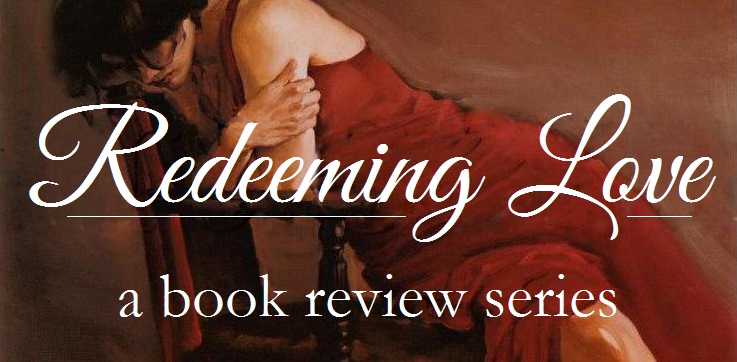Plot summary:
- Michael sees Angel, God audibly speaks to him and says “This one, beloved.” (53)
- He buys half an hour with her that night and proposes.
- She refuses. She continues to refuse, over the next week, quite emphatically.
- Michael argues with God, leaves town.
- Angel decides she’s done working for Duchess, demands her wages.
- Duchess has her beaten. Angel wants Bret Magowan to kill her, provokes him.
***
I’ve been reading A History of God by Karen Armstrong for a little bit. In the second chapter, she’s explaining the different ways the prophets described their deity, and I want to share what she says about Hosea:
It was only with hindsight that it seemed to Hosea that his marriage had been inspired by God. The loss of his wife had been a shattering experience, which gave Hosea an insight into the way Yahweh must feel when his people deserted him and went whoring after deities like Baal. At first Hosea was tempted to denounce Gomer and have nothing more to do with her: indeed, the law stipulated that a man must divorce an unfaithful wife. But Hosea still loved Gomer, and eventually he went after her and bought her back from her new master. He saw his own desire to win Gomer back as a sign that Yahweh was willing to give Israel another chance. …
Hosea saw Yahweh as a jilted husband, who still continued to feel a yearning tenderness for his wife. (48)
There’s a lot more there, and the surrounding argument about how the prophets were anthropomorphizing God is fascinating, but I wanted to highlight that section because it’s important to me to remember that the American evangelical way of interpreting the Bible is far from the only way, or the “right” way. We’ll see Francine’s acceptance of their interpretation of Hosea pop up for the first time here, and I would like us to spend time separating what conservatives say about Hosea and what Hosea might actually have to say for himself.
It’s ok to find Hosea’s story troubling. You can’t remove the man from his culture, and his account is an excellent example of this. However, I do think it’s both possible and necessary for us to wrestle with the parts of the Bible that make us uncomfortable, especially when that discomfort is a sign of conscience.
When Michael finds out who Angel is, he “felt as though he had been kicked low and hard” (so, in the balls), and then says to God “Lord? Did I misunderstand? I must’ve. This can’t be the one” (54). Francine is projecting modern Christian attitudes about prostitutes back onto an 1850s man, because as I’ve mentioned before that wouldn’t have been a big deal at the time. However, it’s important that Michael be repulsed by the ideal of marrying a “soiled dove” for theological reasons: according to the common conservative presentation of Hosea, women like Gomer/Angel/Nation of Israel are disgusting. They’re disgusting like all born sinners are disgusting, really, but Francine really wants to nail the message home through using Michael to voice her whorephobia.
However, if we looked at Hosea with an alternate lens, we could reject the whorephobia in the narrative– which, honestly, is only one chapter out of a fourteen-chapter-long oracle– and look for the compassion that’s woven into the rest of the text. A lot of the anger Hosea feels is directed toward the “Johns” of the ancient world– the people who exploit and oppress and abuse. After he buys Gomer back there’s no brimstone directed toward her or their children. The story conveys a sense of justice– the people who were abused and neglected will be restored.
But, that emphasis on compassion is not theologically relevant to Francine. The typical evangelical desire is to convince everyone that we’re disgusting sinners in need of God, and that’s what Francine needs Angel to understand– that she’s a disgusting whore in need of Michael’s saving grace. Francine beats us over the head again and again with all the times that Angel has “failed” at saving herself through these chapters until she ultimately gives up and decides to provoke Bret into beating her to death (93).
The biggest problem with Francine’s characterization of Michael– and therefore Hosea, ergo God themself– is that ignoring consent is an essential facet of both Micheal and God’s character. At the end of Michael’s opening scene, there’s this line: “But he knew he was going to marry that girl anyway” (56). There’s no if she’ll have me anywhere– not there, not in the next three chapters. At one point God tells him to “Go back and get Angel.” Get her. Not “try to convince her again, I’ll soften her heart for you this time.” None of that, nothing resembling consent. Just abduction.
What Angel wants is irrelevant to both God and Michael. What she wants to be called (64). That she doesn’t want to leave (67). He tells her that she “doesn’t know anything about” him (67) and rejects her stereotypes of “men,” but then makes a stereotypical assumption about her (that he “wants what you don’t even know you have to give”) and it’s not a problem for him to override her own sense of personhood (68). Her life choices “became my business the minute I saw you” (77). When God orders him to abduct her, and he refuses, it’s not because abduction would be wrong, or that he doesn’t want to do something to Angel that she doesn’t want, it’s because “The last think I want or need is a woman who doesn’t feel a thing” (80).
***
All through these two chapters, Francine is painting a deliberate picture of Angel’s resistance. This section of the book is called Defiance, and it’s supposed to parallel an evangelical narrative about conversion: God draws people to him that don’t understand that they need him. They want to stay in their sin (the Palace), they don’t want to accept help or a way out that they didn’t make themselves (marry Michael).
Angel is being stubborn. Michael has given her plenty of opportunities to show her that he’s actually a decent human being. Speaking of, the fact that Francine thinks that Angel could tell at this point that Michael is “not like” (sarcasm quotes there) Duke, or Johnny, or Bret … it’s disturbing. All Michael has done at this point is be an arrogant, irritating man with a frightening temper (76-78), but the subtext to all of Angel’s thoughts is “why don’t I want to accept his help?” which she wonders openly at several points. The answer: again, she’s a disgusting sinner who doesn’t know she needs God/Michael.
A few last notes: there’s some horrific fatphobia here, with Francine describing Duchess using terms like “rolls of flesh,” “puffy cheeks,” a comment about a second chin, and then calling all of that “obscene” right before Duchess orders Bret to beat Angel (89). Yaaaaay. Also, she’s a terrible writer. She freely flouts the old “show, don’t tell” rule, and switches being narrators sometimes in the same sentence. There’s no definite point of view– it’s not a true third-person narrator, and we’re jumping in and out of people’s heads, getting the inner thoughts of basically every character, not just Angel and Hosea.
Bonus prediction: Francine’s going to take Old Testament passages that refer specifically to Israel and apply them directly to Michael and America, the Christian Nation.


